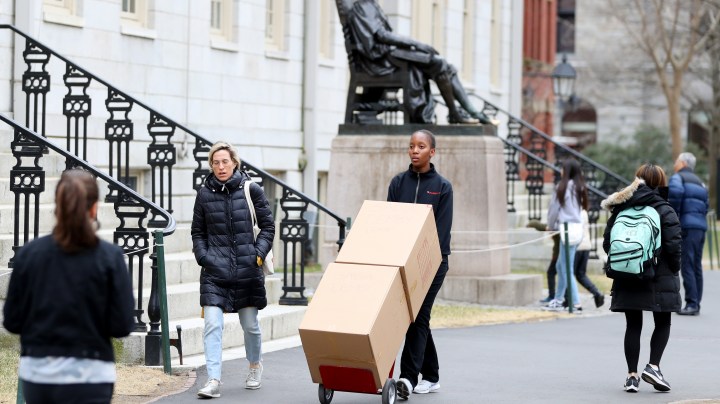ICE Pedals Back on Decision to Make Life Difficult for International Students

Sophomore Sadia Demby moves her belongings through Harvard Yard on the campus of Harvard University on March 12, 2020 in Cambridge, Massachusetts. Photo by Maddie Meyer/Getty Images
On July 14, less than five minutes into a hearing in regard to the lawsuit Harvard and MIT filed in response to a policy change that barred international students from online-only colleges, The Department of Homeland Security and U.S. Immigration and Customs Enforcement (ICE) rescinded the policy modifications.
The xenophobic and non-health-conscious move made by way of ICE presented new, obvious challenges for students who were preparing for the semester, which starts in less than two months.
“We will not stand by to see our international students’ dreams extinguished by a deeply misguided order,” Harvard University President Lawrence S. Bacow wrote last week. “We owe it to them to stand up and to fight—and we will.”
Various other universitis, including Cornell, Duke and Princeton, signed in support of the lawsuit.
On July 6, ICE announced that foreign students would be required to leave the United States if their college of choice opted for a fully virtual Fall semester. The announcement was made as a modification to the Student and Exchange Visitor Program (SEVP), which has been in place for years. The decision came after many universities opted to go fully virtual for Fall 2020, given the pandemic.
Institutions like New York University and Harvard University quickly found loopholes to the policy and implemented hybrid programs. Now, foreign students can walk a little lighter.
The United States hosts the most international students in the world, according to Open Doors’ most recent study. The relationship is a symbiotic one and, if anything, the nation benefits more from having them here than they do. In 2017, international students contributed at least $42.4 billion to the U.S. economy.